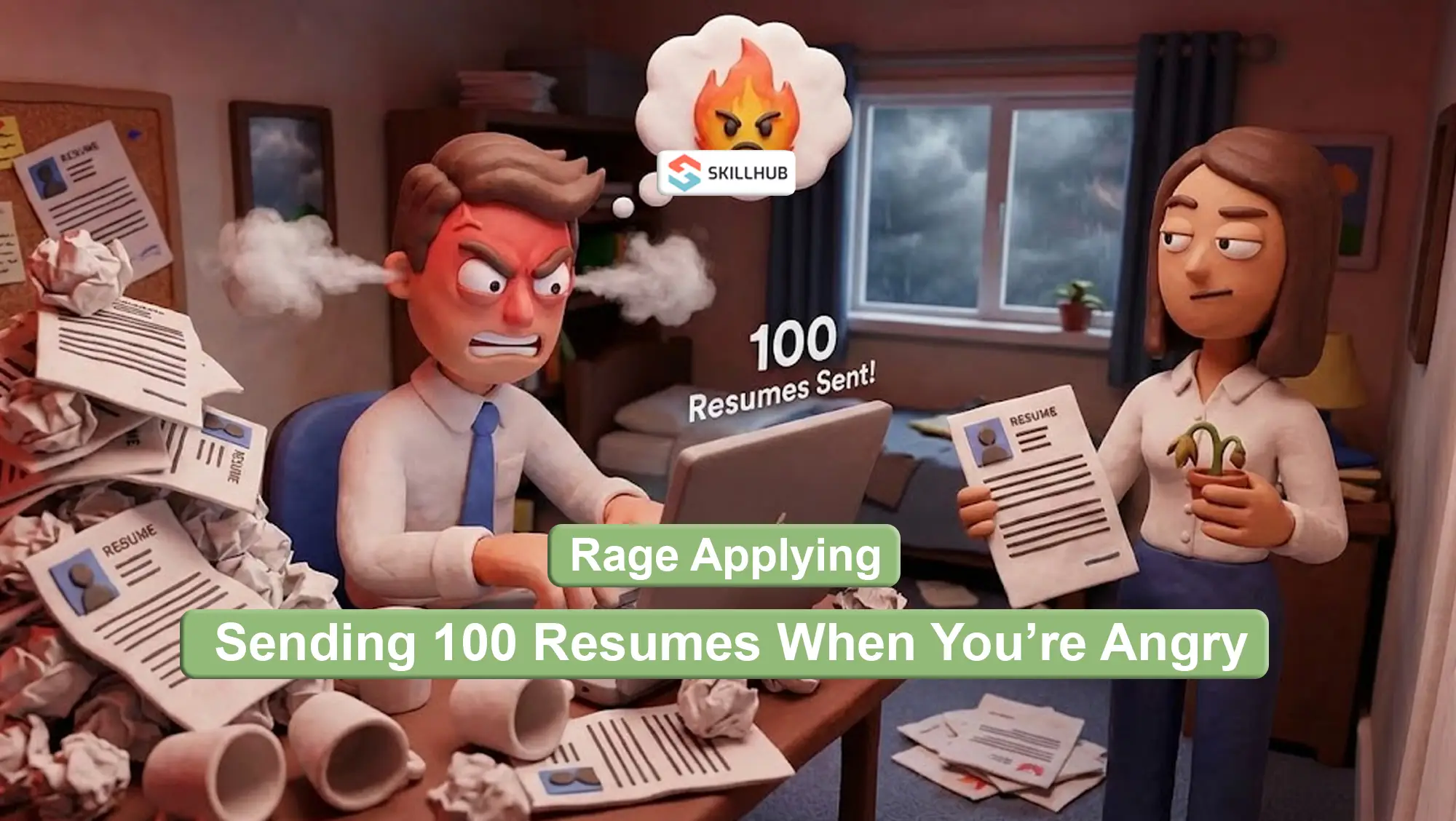10 Performed Well Computer Skills on Resume to Be Noticed

No matter your occupation, there’s no way you’ll land a job without the right computer skills. Today, even warehouse workers have to work with RFID scanners and in-house applications!
But which skills should you add to your resume? And how do you do it compellingly?
You’ve come to the right place looking for the answers to those questions. Here’s what we’ll cover here:
- What computer skills are;
- How to develop them;
- How to add them to your resume.
Worried you won’t have time to craft an outstanding resume that’ll beat the competition? Contact our skillful resume writers – they’ll gladly help you out. And in the meantime, you can focus on preparing for that interview!
Ready? Let’s get started!
What Are Computer Skills, Exactly?
In a nutshell, having ‘computer skills’ means you know how to use the computer to do your job. They typically fall into one of these two categories:
- Hardware skills – i.e. using devices themselves;
- Software skills – i.e. using the operating systems and applications.
McKinsey already puts computer skills among the three cornerstones of employability. Their research distinguishes three large groups of computer skills that are currently in demand:
- Digital fluency: digital literacy, learning, collaboration, and ethics;
- Software use and development: programming literacy, data analysis and statistics, computational and algorithmic thinking; To translate these skills into tangible results, familiarity with and mastery of modern data analytics tools are crucial.
- Understanding digital systems: Understanding digital systems: data literacy, smart systems, cybersecurity literacy, firewall systems, tech translation, and enablement.
Lack of some computer skills is one of the reasons why around half of the global workforce will need reskilling by 2025. That’s according to the World Economic Forum’s Future of Jobs Report.
Why Computer Skills Matter
So, why exactly should you put these skills on your resume? Well, virtually any job involves using digital tools in the 21st century. That’s why if you can’t prove you know your way around them, you’ll lose out to the job applicants who have proficient computer skills.
And for some jobs, it’s not enough to have the basic digital literacy competencies. Accountants, marketing specialists, and other professionals spend their whole working days in front of a computer. So you need to be more than aware of how to use this or that professional tool – you have to be efficient at that, too.
Improve your professional brand on Linkedin! Need help? Take Linkedin resume writing service and show up in more recruiters' searches.
10 Crucial Computer Skills for Resume
Different jobs require different levels of proficiency when it comes to computer skills. Here’s a list of computer skills to put on your resume to show you know the basics:
- Office suites (Microsoft Office and G Suite);
- Presentations and slideshows (PowerPoint, Google Slides);
- Basic experience with operating systems;
- Cloud storage (Google Drive, OneDrive, Dropbox);
- Spreadsheets (Google Sheets, Microsoft Excel);
- Communication and collaboration tools.
And here’s an advanced computer skills list that can be useful in particular professions:
- Accounting software and enterprise systems;
- Social media proficiency;
- Graphical skills;
- Programming skills.
Learn more about resume skills by industry on https://skillhub.com/resume-skills.
10 Computer Skills for Resume Examples
Now, let’s break down what each of those skills listed above means in practice – and how to describe them in a convincing way to any hiring manager.
1. Office Suites (Microsoft Office, G Suite)
These suites include collaboration and productivity tools that are irreplaceable for practically all jobs. A typical office suite includes:
- Word processor (e.g., Word, Google Docs);
- Spreadsheets (e.g., Excel, Google Sheets);
- Presentation tools (e.g., PowerPoint, Google Slides);
- Email client (e.g., Outlook, Gmail).
Who needs to know these apps inside out? Everyone! There’s no job left in the 21st century that can be done without checking the email inbox and writing responses – or without creating docs in a word processor.
2. Presentation Software Skill
Across all industries, some occupations require good leadership skills combined with presenting your ideas and results in an easy-to-grasp way. This is where these skills matter:
- Tools: Google Slides, Microsoft PowerPoint, Canva, Crello;
- Using templates from sites like SlideModel;
- Organizing content in a simple and comprehensive way;
- Adding various media: photos, videos, animations. To keep motion visuals looking polished, it helps to understand After Effects rendering, especially when exporting short animations for slide decks or video presentations. A clear workflow also prevents quality loss and reduces last-minute delays when you’re finalizing assets.
- Avoiding old-fashioned design choices.
Which occupations require great presentation skills? For one, all kinds of managers, from sales to marketing. Or, in general, anyone who has to make pitches and share their results, within the company or to its clients.
3. Operating Systems Software Skills
This skill means knowing your way around both Windows and macOS operating systems. (Having used Linux is also a plus, but this OS isn’t as widespread.) This means you know how to:
- Work with files in the local library;
- Navigate the menu;
- Access and change the settings;
- Troubleshoot basic issues.
It’s a must-have for any profession that involves using a computer. For example, that can be any hiring or sales manager – they’re guaranteed to spend a lot of time in front of a screen.
4. Cloud Storage
Cloud storage is the most popular way to keep and manage files these days, among businesses and individuals alike. So, you need to know your way around Google Drive, OneDrive, Dropbox, and the like. Here’s what it means:
- Creating, editing, and versioning files;
- Managing access and edit permissions;
- Copying, moving, and deleting files.
This skill is crucial for any employee who accesses and works with the files in the cloud storage. It can be anyone from an assistant manager to an SEO specialist.
5. Computer Skills Resume Examples: Spreadsheets
Working with spreadsheets is unavoidable when you need to organize data. Here’s what it can mean in practice:
- Sorting data with filters;
- Using formulas to find the right information, perform mathematical operations, gain insights, etc.;
- Setting up conditional formatting;
- Pivoting tables and performing comparative analyses.
Basic spreadsheet skills (i.e. how to work with cells, rows, and columns) will come in handy in any profession. For many students, building that confidence in Excel starts with practice and sometimes even getting help with Excel homework from services like DoMyExcelHomework. More advanced know-how (like what’s described above) is a prerequisite for anyone who deals with a lot of numbers: sales managers, accountants, etc.
Give an example of experience to a cover letter to prove your computer skills! If you need help, take a hand of professional cover letter writing services online! It's friendly, fast and professional.
6. Communication & Collaboration Tools
All businesses use at least one communication and collaboration tool, be it Skype, Slack, or Microsoft Teams to boost their workers’ productivity. So, you need to know how to exchange messages and use various chats – and how to do it professionally, too. An omnichannel contact center integrates these tools seamlessly, ensuring consistent and efficient communication across all channels.
Being familiar enough with these tools is a must in any job that involves communication and collaboration – which is, well, any job these days, from a customer support specialist to a project manager. But this is especially crucial for anyone who plans to telecommute!
7. Accounting & Enterprise Software Skills
Accounting tools include FreshBooks, QuickBooks, and Wave Accounting. Here’s what working with them includes:
- Budgeting;
- Expense tracking;
- Knowing how to manage accounts;
- Invoicing and billing;
- Working with payroll.
Enterprise systems, in their turn, come in many shapes and forms:
- CRMs (customer relationship management);
- ERPs (enterprise resource management);
- EMSs (enterprise messaging systems).
To work with any of them, you need to be familiar with its core features.
Knowing how to use accounting software is crucial for anyone working in finance. As for the enterprise systems, members of human resources, marketing, sales, and customer teams all have to deal with one. In addition to mastering accounting and enterprise systems, integrating accounts payable software helps connect these tools seamlessly by automating invoice approvals, syncing expense data, and ensuring smoother collaboration between finance, HR, and operations teams.
Learn more:
What is summary of Qualifications
Must leadership skills you might have
8. Social Media Proficiency
This is one of those personal computer skills that can turn into a full-fledged profession. Here’s what it includes in practice:
- Creating compelling posts for a variety of platforms (Facebook, Twitter, Instagram, LinkedIn);
- Interacting with other users to maintain an online presence;
- Working with the business page features (e.g., paid ads);
- Using scheduling and analytics tools like Buffer, Nuelink, and Hootsuite.
Of course, anyone who directly works with social media should possess these skills. They’re also irreplaceable if you want to land a job in public relations, advertising, or marketing.
9. Graphical Skills
What does it mean to have these particular computer skills on resume? Here’s a brief list:
- Using tools like Photoshop, Illustrator, InDesign, Canva, or Crello;
- Creating various types of designs: banners, posters, etc;
- Visualizing data in infographics and such.
You have to put these computer skills on your resume not only if you want to be a graphic or web designer. A project manager, for example, may want to use a tool like Venngage for data visualization before an important meeting.
10. Programming Skills
Programming skills are vast – they’re a whole category counting 50+ different competencies. Each of them can be relevant for some jobs and useless for others. Here are just some of those skills:
- Proficiency in certain programming or scripting languages (C++, Java, Python, etc.);
- Using testing and debugging tools;
- Writing clean and efficient code.
Of course, it’s one of the advanced computer skills vital for jobs in software development (e.g., Python programmer, ROR Developer, software engineer). However, don’t hesitate to show them off if the job is related to tech or involves problem-solving, analytical thinking, or algorithm design.
Still, have questions about programming skills? Learn more at Career Hub.
How to Develop Computer Skills
Some people tick most of the boxes as-is. Others may still need to work on their computer proficiency skills to compete in the job market.
If you fall into the second category, you probably have one question. How do you improve those skills, exactly?
Here are five ways you can level up in computer proficiency without too much hassle:
- Sign up for online courses;
- Test your skills to see where you lack;
- Read or watch tutorials;
- Go to a local in-person class;
- Practice and explore on your own.
Complete Computer Skills Training
This is the most sure-proof way to learn any computer skills. Here are five free online courses you can take from the comfort of your home:
- Basic Computer Skills by GCFLearnFree;
- Basic Computer Training Lessons by Meganga;
- Microsoft 365 Training by Microsoft;
- Fundamental Computing Skills for the Digital Middle Age by Rick Phillips (Udemy);
- Basic Computer Skills – Skills to Help You Succeed by Todd McLeod (Udemy).
Learn more about resume examples on https://skillhub.com/resume-examples by industry.
Take Basic Computer Skills Tests
Here’s a brief five-part questionnaire you can use for basic computer skills testing:
- How do you start the computer?
- How do you minimize or close a window?
- What do you use the right and the left mouse buttons for?
- What app do you use for browsing the web?
- How do you copy and paste text?
If you’ve answered all the questions, congratulations – you’ve passed the test!
3 More Ways to Improve Your Computer Skills
If you want to have more achievements to put on your resume, here are three more ideas on how you can develop your computer skills even further:
- Read or watch tutorials on websites like Lifewire and PCMag;
- See if your local libraries, colleges, and nonprofits offer in-person classes;
- Practice and explore new features as much as you can.
How to List Computer Skills on Resume
Alright, you have a long list of computer skills you possess. How do you present them compellingly? And how do you know which computer skills to put on resume, even?
Let’s say you apply for a project manager position. First, choose only the skills that are relevant for this position. Then, pepper the employment history with tech-related achievements:
Project Manager | Iron Enterprises (June 2018 – January 2020)
- Oversaw a 15% productivity increase after switching the team from Trello to Jira;
- Enhanced knowledge sharing by creating a centralized repository at Notion.
Then, list every relevant skill in the Skills section in a separate category:
Technical skills: Trello, Jira, Airtable, Slack, Notion, G Suite, Canva.
The Bottom Line
Most computer skills go without saying these days, but not having them seriously undercuts your chances of getting hired. That’s why you should:
- Check which out of the 10 computer skills listed above you possess;
- Invest some time in developing your digital skills – and leveling them up, too;
- Choose only the relevant computer skills for your resume;
- Describe them in the context of your experience and in a separate section.
Don’t worry if you don’t get this part of resume crafting right in a snap of a finger. Our masters of the written word and resume composing affordable article writing services would be delighted to help you prepare a knockout resume that’ll get your foot into the door!
%20(1).png)



%20(1).webp)